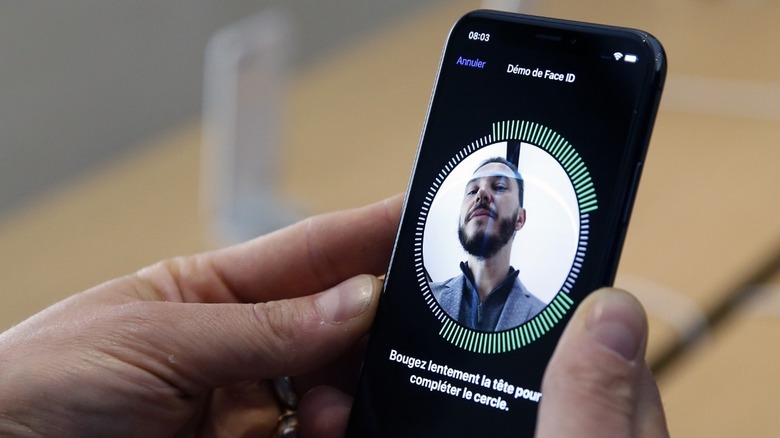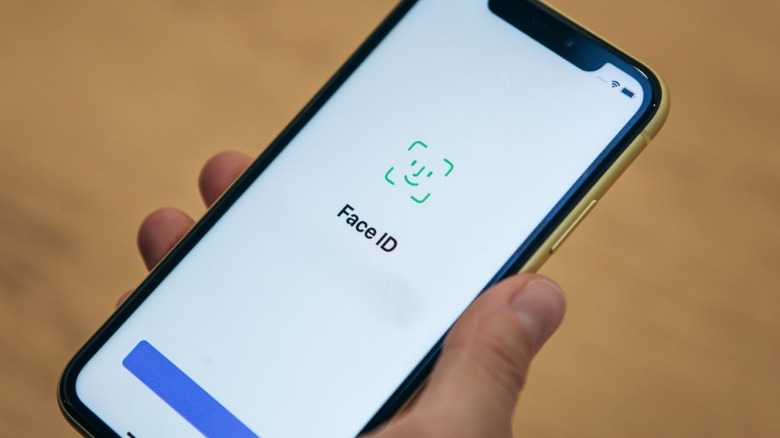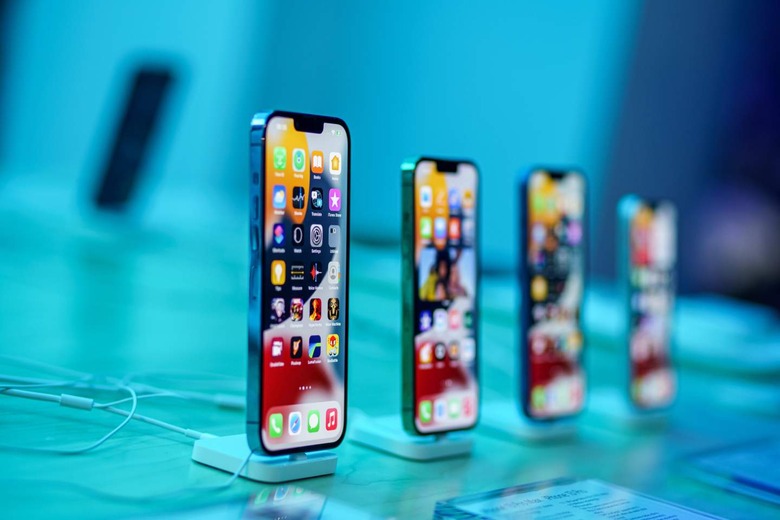

iPhone X Users Can Now Get Face ID Repairs Easily
source link: https://www.slashgear.com/824365/iphone-x-users-can-now-get-face-id-repairs-easily/
Go to the source link to view the article. You can view the picture content, updated content and better typesetting reading experience. If the link is broken, please click the button below to view the snapshot at that time.
iPhone X Users Can Now Get Face ID Repairs Easily

Here's some good news for those of you still rocking an iPhone X: Apple has reportedly started offering repairs for the phone's Face ID module without needing to replace the entire handset. The fact that Face ID repairs once required a full device replacement was likely a huge headache for a lot of iPhone X users, as it meant repairs weren't cheap or particularly easy. Not only that, but at a time when much of the world seems to be turning its focus toward reducing tech waste, Apple's policy of fully replacing phones that needed new Face ID modules likely didn't sit well with a lot of owners.
Apple's move to repairing Face ID sensors without full device replacements is a relatively new thing itself, as rumors of its rollout only started surfacing in February. At the time, a MacRumors report claimed that Apple and third-party repair technicians would be able to replace Face ID modules without having to replace the entire device, but that such repairs would be limited to iPhone XS and newer, leaving the iPhone X out in the cold. Now, thanks to MacRumors once more, we're learning that Apple has updated its repair policies to include the iPhone X.
Too little, too late for Apple's Face ID repair program?

MacRumors claims to have seen a memo that says the iPhone X's Face ID system can now be repaired without an entire device swap but provides little extra context — not that it's needed in this case, as this is a fairly small change in the grand scheme of things.
One has to wonder if this updated policy is coming around the bend a little too late, though. The iPhone X was first released in 2017, meaning the device is a little over four years old at this point. It's old enough that Apple doesn't sell it anymore — the oldest iPhone you can get from the company currently is the iPhone 11, which is two generations newer than the iPhone X.
Still, this change won't be entirely worthless. The iPhone X is still a solid phone, and it wouldn't be surprising to learn that many still use it as a daily driver (albeit after swapping out an aging battery or two). This new policy will help ensure that any remaining iPhone X handsets in use won't have to be thrown out entirely when their Face ID modules go bad, which is good, but we can't help but wish Apple would have rolled out this new repair policy years ago.
How Steve Jobs' iPhone Keynote Changed Everything

When Steve Jobs took the stage at Macworld in San Francisco, January 9, 2007, to introduce the first iPhone, no one could have imagined the impact that small device would have on Apple, the smartphone industry, and the world at large. Back then, the smartphone market was much different — and far smaller — than it is today.
In Q4 2006, only 18 million smartphones were shipped, with an additional 2.5 million wireless handhelds and 1.5 million traditional handheld devices (via Canalys). For comparison, more than 300 million smartphones were shipped in Q3 of 2021, alone. That means a total of only 22 million smart mobile devices were shipped in Q4. Even more telling, Canalys noted that this seemingly small number represented a 30% increase year-over-year.
In those early days of the smartphone market, Nokia was the company to beat, with BlackBerry, Motorola, Palm, and Sony Ericsson rounding out the top five (via AppleInsider). One thing that defined all of the major companies were phone designs that incorporated physical keyboards. In that market, Jobs and Apple saw an opportunity for revolutionary change.
How the iPhone impacted the industry
What immediately caught most people's attention was the touch screen interface (via History). The entire front of the iPhone was one large screen, completely devoid of a physical keyboard. Instead, the interface adjusted to the user, hiding or displaying the keyboard as needed. Despite its revolutionary features, many were not convinced the iPhone would gain traction.
In an interview with USA Today, Microsoft CEO Steve Ballmer said the following: "There's no chance that the iPhone is going to get any significant market share. No chance. It's a $500 subsidized item. They may make a lot of money. But if you actually take a look at the 1.3 billion phones that get sold, I'd prefer to have our software in 60% or 70% or 80% of them, than I would to have 2% or 3%, which is what Apple might get."
 Rokas Tenys/Shutterstock
Rokas Tenys/Shutterstock
Unfortunately for other smartphone makers, their dismissiveness of iPhone's impact on the market was their own undoing. Nokia and BlackBerry's market share plummeted, as Investopedia points out, with both making major changes to their business models just to survive.
Most smartphones now mimic the features the iPhone pioneered. However, Digital Trends has noted that the market is largely divided between the iPhone and Google's Android operating system (OS), which debuted in September 2008 and borrowed heavily from iOS. Handheld GPS along with low to mid-range cameras and standalone MP3 players were completely upended, as the iPhone took on those roles in a single device.
How the iPhone impacted Apple
Not to be overlooked is the impact the iPhone had on Apple itself. Apple began as a computer maker, and nearly died as one (via Business Insider). Prior to Jobs' return to the company, it was teetering on the edge of bankruptcy.
As Business Insider noted, Jobs helped turn the company around with the original iMac, followed by the G3 Mac, the G4, and the iPod. Despite the company's success with those products, the iPhone propelled it to all new heights. Apple went from being a computer whose Mac OS was a distant second to Windows — that also made a successful music player — to a company that was a market leader in the smartphone industry.
Even after the rise of Android, which according to Statista currently has the lion's share of the global market, Apple continues to be a dominant force. The success of the iPhone also helped drive Apple to be the first U.S. company to ever be valued at $1 trillion (via CBS News).
How the iPhone impacted Jobs' legacy
Another major impact the iPhone had was on Steve Jobs himself, and the legacy he left behind. Jobs died four years after he introduced the iPhone at MacWorld, leaving behind a far greater legacy as a result of it.
Jobs had a conflicted history at Apple, co-founding the company with Steve Wozniak before eventually being ousted for his mercurial nature. He went to found NeXT, Inc. in an effort to duplicate his initial success with Apple. Ultimately, NeXT failed as a company, but it helped create an OS that would eventually serve as the foundation of the current macOS, after Apple purchased NeXT to bring Jobs back into the fold, as told by Business Insider. In the midst of his exile from Apple, Jobs also purchased Pixar. That company would go on to produce some of the most successful animated films in history.
Founding Apple, buying Pixar, and then turning Apple around and helping save it from bankruptcy and oblivion would have been accomplishment enough to cement Jobs as one of the 20th century's most successful entrepreneurs and CEOs. The success of the iPhone, however, helped catapult Jobs' legacy to the realm of legend, making him an icon that countless Silicon Valley entrepreneurs aspire to. No one could possibly have known how much the iPhone would change the world when it was first introduced but, in a true testament to how much it did change, it's tough to imagine a world without it.
Recommend
About Joyk
Aggregate valuable and interesting links.
Joyk means Joy of geeK